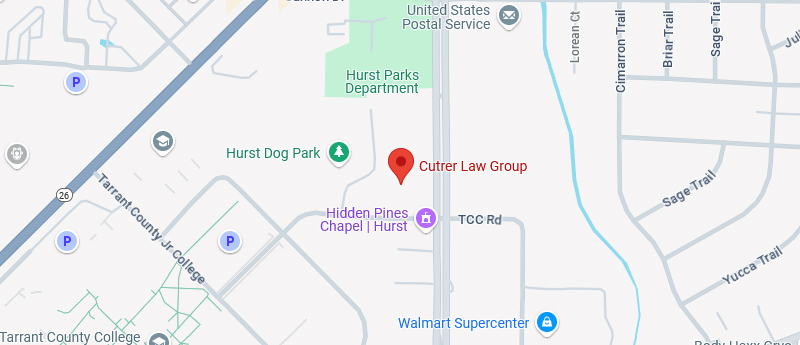One stressor that can arise during the divorce process is financial concern. While the old adage “two can live as cheaply as one” isn’t necessarily correct, it’s often true that finances take a toll when one household divides into two. If it looks like your expenses aren’t going to be manageable on your own, and there’s no way to restructure your debt to make it more feasible, bankruptcy may be the route to go. It is allowed during divorce proceedings, but there are several things you need to know before filing for bankruptcy.
What Happens to Property Division When Bankruptcy Enters the Picture?
One critical aspect of how bankruptcy affects divorce proceedings is that it puts a stop to the division of property and assets in a legal maneuver called a “stay.” This is a big part of working out a divorce agreement, which slows things down.
Most or all of what would be considered your assets become part of the bankruptcy estate, which must be settled before the division of assets can be completed through the divorce. That’s one reason it might be better to wait until the divorce is finalized, with all assets and debts divided between the former spouses.
How Long Will the Bankruptcy Stay Last?
Once a bankruptcy stay has been ordered during a divorce, it stays in place until all assets and debts that might be part of the bankruptcy have been handled, the bankruptcy is finalized, or the filer is discharged from bankruptcy proceedings. How long that takes depends on the amounts of debts and assets held jointly in the marriage, which can take time to sort out.
Does the Bankruptcy Court Handle the Division of Marital Property?
Technically, the bankruptcy court can handle the division of marital property, at least the property that’s affected by the bankruptcy. However, often bankruptcy court will defer to family law and divorce court for the actual division.
If One Spouse Declares Bankruptcy During a Divorce, Is the Other Spouse Required to as Well?
No. You’ll need to provide information about your marital status along with each of your financial situations as part of the bankruptcy. Even if you’re separated, you’re still technically married, so the bankruptcy court will require that information. You’ll also be expected to provide the reason the spouse is not declaring bankruptcy with you.
What Is the Means Test in Bankruptcy?
The means test is a form that must be filled out by someone who wants to declare bankruptcy. In that form, they must disclose their marital status (married, divorced, or separated). In situations where the debtor is separated from their spouse, and the spouse is not declaring bankruptcy, the debtor has to swear under oath that they genuinely are in financially dire straits, not just living apart from the spouse to game the bankruptcy system. This test is often used to determine whether someone is eligible to file for Chapter 7 or Chapter 13 bankruptcy.
What Happens if I Declare Bankruptcy Before the Divorce?
Suppose both spouses are on board with declaring bankruptcy. Taking that action before divorce might make sense because they can file for joint bankruptcy, something they can’t do once divorced. The advantage to filing jointly is that it’s less expensive to declare jointly as opposed to separately, where each side has to pay the relevant fees (attorney, filing, etc.) instead of paying once for both.
It also makes sense if there is joint debt that could be discharged and ultimately make the division of debts and assets easier when the divorce proceedings take place. It can be hard to picture working with someone you want to divorce, which you would need to do when declaring joint bankruptcy. But there’s a possibility that you both would end up with more assets than if you file separately.
Will My Child Support Payments or Alimony Be Affected by Bankruptcy?
No. If the divorce court requires you to pay child support or alimony, that will not be touched by the bankruptcy court. In addition, creditors can’t look at those funds as a source of repayment for previous debts. For a spouse who receives child support and/or alimony, those payments can be deducted from their disposable income by the bankruptcy court. That means the income won’t look larger than it really is because of child support or alimony.
That said, if you fall behind on those types of payments, you may be able to file for a Chapter 13 bankruptcy which could give you time to catch up on the past-due payments and avoid jail time.
Are There Any Other Reasons Not to File for Bankruptcy During a Divorce?
Unless you can easily prove that post-divorce, you won’t be able to manage your bills, declaring bankruptcy during the divorce could make the divorce more acrimonious.
That’s due to the bankruptcy slowing down the divorce. It could also cause the other spouse to question the timing of the bankruptcy and raise questions of motive.
I’m Worried that I Need to File for Bankruptcy While Going Through My Divorce. What Should I Do?
Call us as soon as possible at 817-813-8513 for a case evaluation. Divorce and bankruptcy are each stressful life situations, and together they can feel overwhelming. Our knowledgeable, experienced attorneys can guide you through the intricacies of approaching bankruptcy during a divorce and will do so with the utmost compassion. The legal issues around both divorce and bankruptcy are complex. Let us help you through each process as smoothly as possible.








 1845 Precinct Line Road
1845 Precinct Line Road info@akcfamilylaw.com
info@akcfamilylaw.com 817-854-1651
817-854-1651



